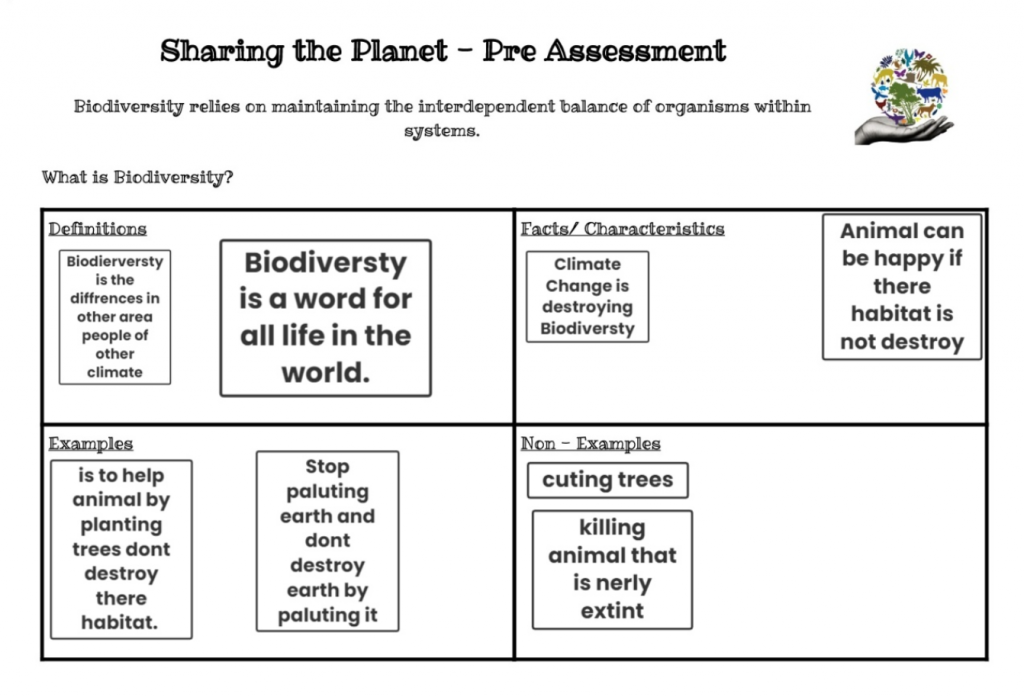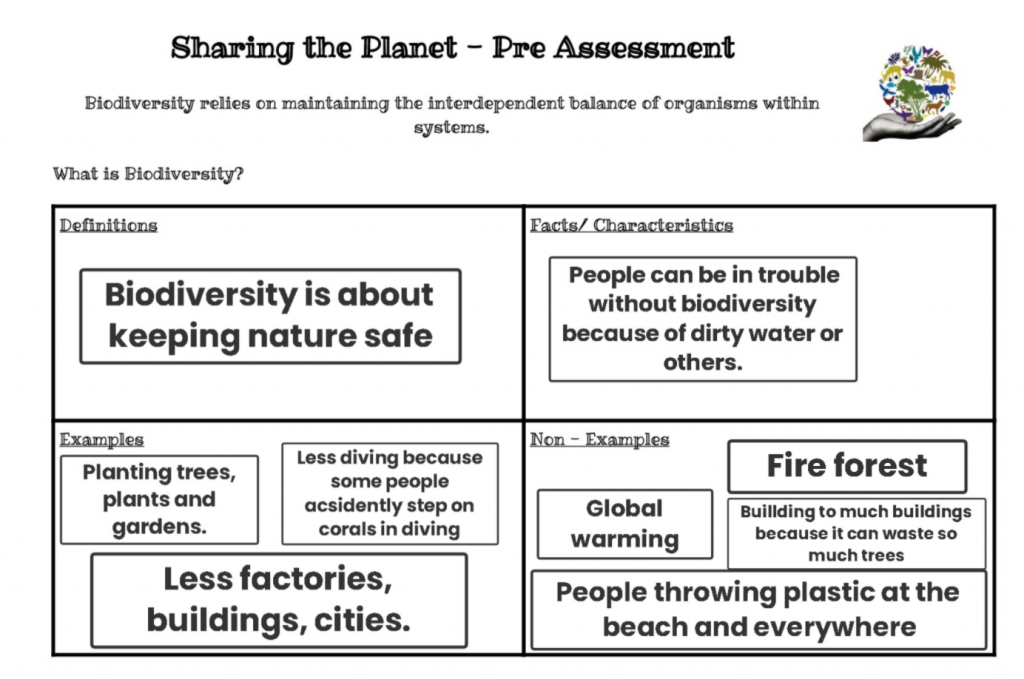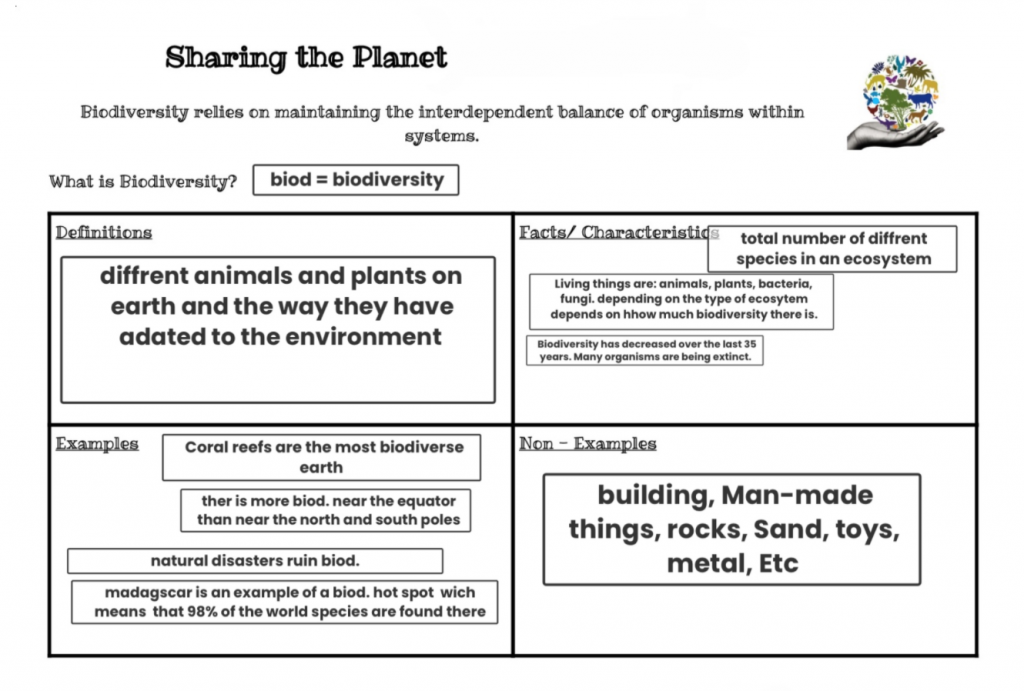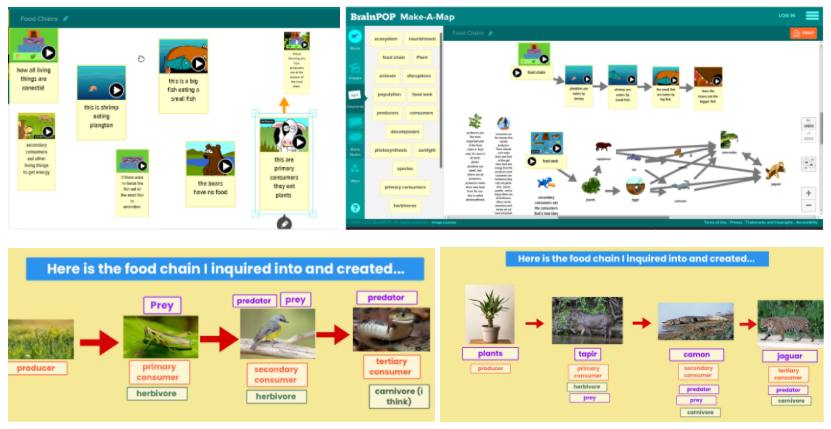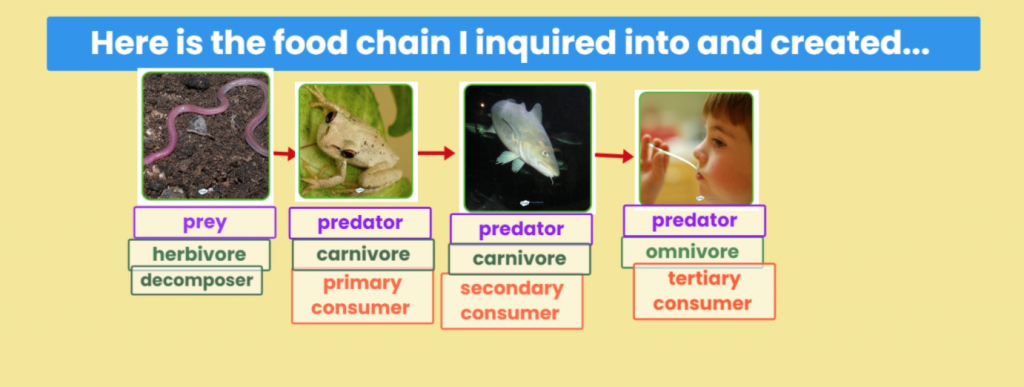Primary eNews – January 22, 2021
Assessment in the PYP
Dear parents,
Based on the results of our parent information session survey sent out last semester, our parents are most curious to find out more about Assessment in the PYP. Please see our survey results below:

Based on this data, I will be hosting a parent information session focusing on Assessment in the PYP. The session will be held over zoom and will be one hour in total. I will share information on assessment practice based on the PYP and what this looks like at Bali Island School as well as how you can support your child in connection with assessment. This will be an interactive session targeted at primary parents. I am looking forward to learning with you all.
Nadia Demolder/PYP Coordnator
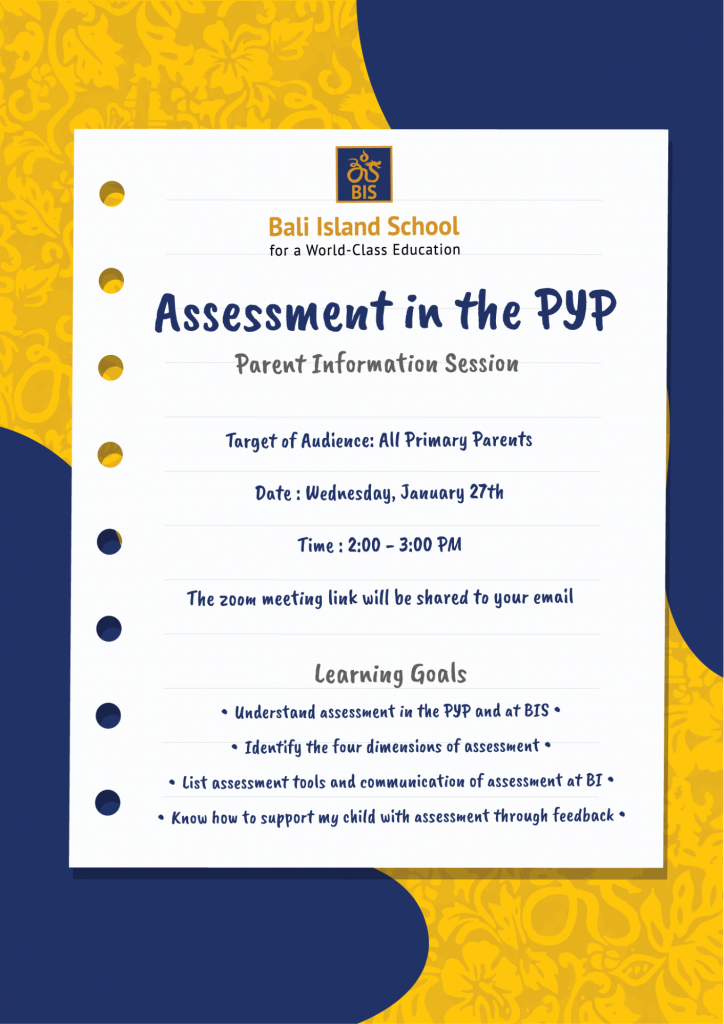
Grade 5 Sharing the Planet Working through the inquiry cycle
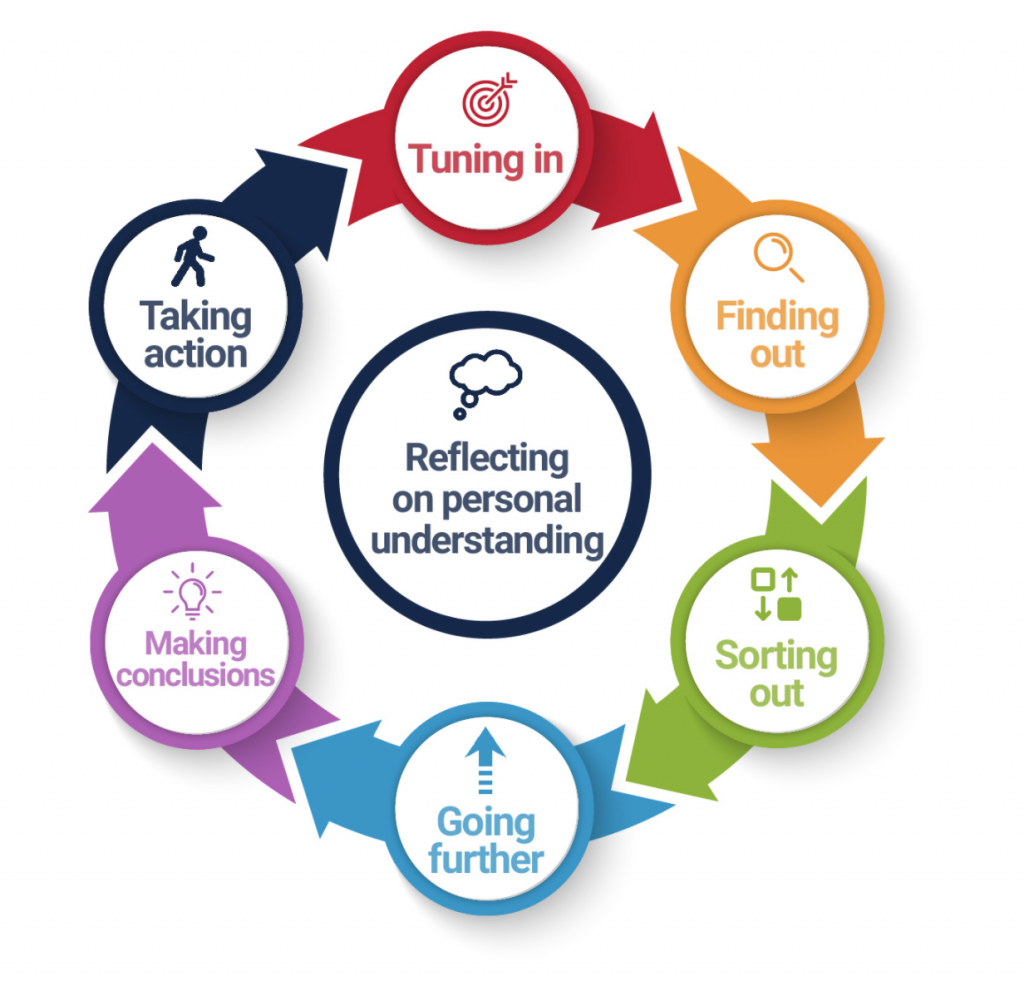
a PYP school, we use the inquiry cycle as a guide for teaching and learning. As Grade 5 began a new unit focusing on biodiversity and the interdependent balance of systems. To tune in, students made connections to their prior knowledge as they rewatched stop motion videos many classmates had created in Grade 3 that focused on animal adaptations and the impacts of humans on animals. Students were able to make instant personal connections with their prior knowledge as well as how their learning had changed since Grade 3.

After this, students created a visible thinking routine called a Frayer model to show their current knowledge and make connections to their own personal experiences. A frayer model encourages thinking skills as students define, share facts and give examples and non examples. This is an excellent opportunity for teachers to cater learning experiences for students and to identify misconceptions.
From these discussions, I could see that students were already extremely knowledgeable about biomes, habitats and ecosystems. We decided to focus more on the idea of interdependence and the balance of systems. To find out more about the food chain, we researched articles and watched videos on BrainPop. Students used a variety of resources to show their understanding of food chains and food webs, using specific vocabulary in context, this allowed them to sort out what they had already learned by focusing on grouping and making connections.
Over the following weeks, students will continue to sort out, go further and make conclusions to deepen their understanding of biodiversity and interdependence.
Grade 3’s Favourite Animal Adaptations
Students in Grade 3 have started this semester with a unit about Sharing the planet, with the central idea: To meet our needs and wants, people make choices that impact animals. As part of the tuning in and finding out stages of the inquiry, students investigated different types of animals, animal classification, biomes and habitats and, our most interesting topic so far, Animal Adaptations! What is an adaptation? A change a living thing goes through to better fit in with its environment. Adaptations help animals survive in their habitats, catch food, protect themselves from predators and even find a mate. We had a look at some amazing animal adaptations of desert animals, polar animals, ocean animals and rainforest animals. Check out this collaborative Google Slide presentation to find out what were our favourites! After reviewing the slides, check out this cool survey so we can see what animal adaptations our community likes, too! Our next step in the inquiry process is to find out more about the impact human choices have on these amazing animals. Students will go further by creating their own stop motion movies to show their understanding. As you saw above in Ibu Nadia’s article, it’s amazing to see the connection between the Grade 3 and Grade 5 units and how students are able to revisit prior learning!
Counseling
Parenting Styles
Once food, water, and shelter are provided. Your child has a few other basic needs:
- A sense of belonging and significance
- Perceptions of capability
- Personal power and autonomy
- Social and life skills
Your parenting style impacts whether your child will have these needs met and feel equipped as an adult.

Researchers have consistently found that authoritative parents tend to raise more self-reliant, socially accepted, academically successful, and well-behaved children. The reality is that most adults have never trained to be a parent, so they parent as their parents did or try to do the exact opposite. With frustration this often leads to swinging back and forth between permissive and authoritarian parenting leaving children confused. These days, we hear about Tiger moms (incredibly rigid with high and often unrealistic expectations), helicopter parenting (hovering to make sure their children never face failure or discomfort), or snowplow parenting (removing all obstacles to prevent failure or pain). Check your style with this quiz.
If a goal of yours is to build resilience and prepare your children for adulthood, try to embrace authoritative parenting. Positive Discipline and Parent Effectiveness Training are parenting courses that teach parents to be authoritative in their approach.
The basics for implementing positive discipline are:
- Get children involved in creating routines by giving limited choices and providing opportunities to help.
- Teach respect by being respectful.
- Use your sense of humor. (Limit or eliminate sarcasm.)
- Get into your child’s world.
- Say what you mean, and then follow through with kindness and firmness.
- Be patient.
- Act, don’t talk. Supervise carefully.
- Accept and appreciate your child’s uniqueness and strengths (Nelson, EdD, 2007).
Download the app called Positive Discipline Parenting Tools to get an idea of the basics. Try reading a Positive Discipline book; there are Positive Discipline books for different age levels. Look for sign-ups for a Positive Discipline course I am offering starting the week of Feb 1st, either at the school or online, once we know our options. I will share the sign-up via class WhatsApp groups and homeroom teachers.


